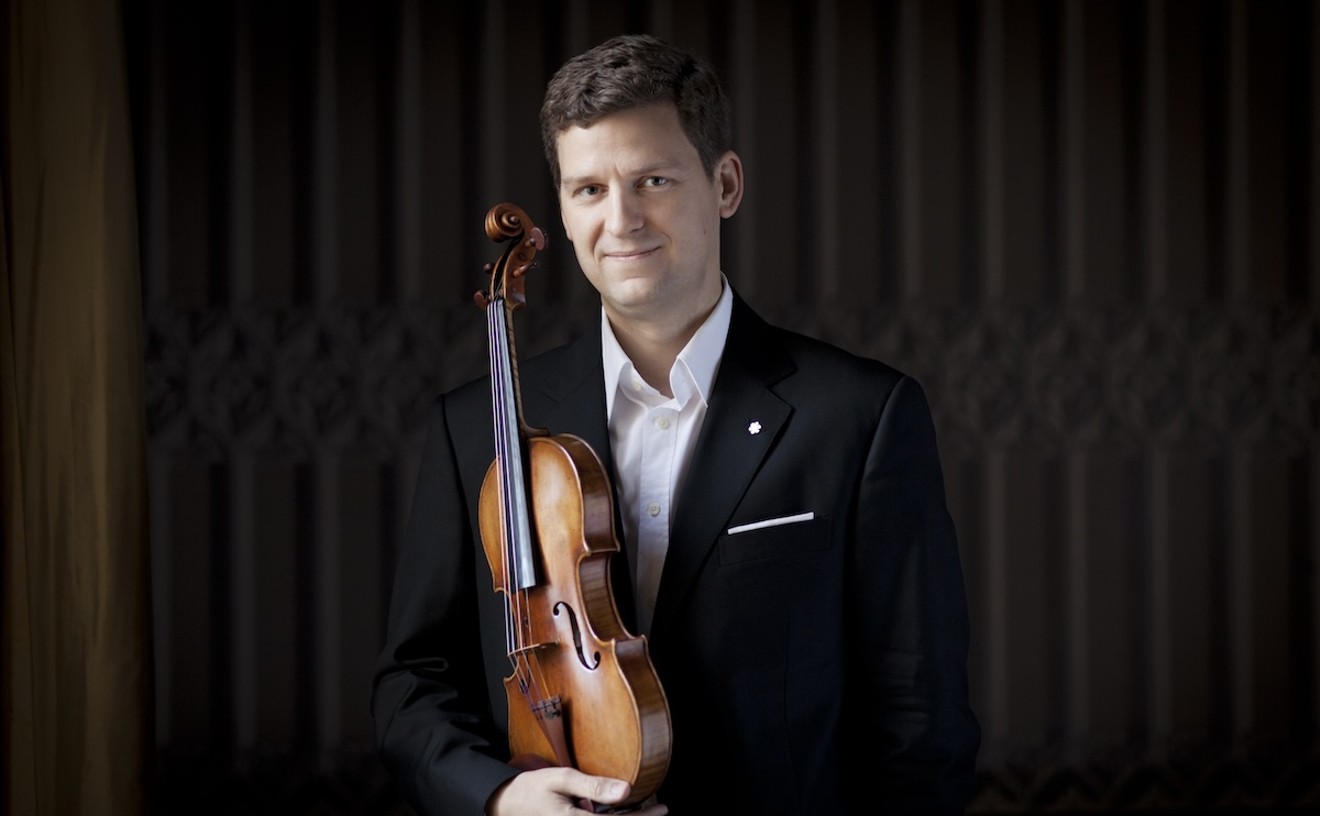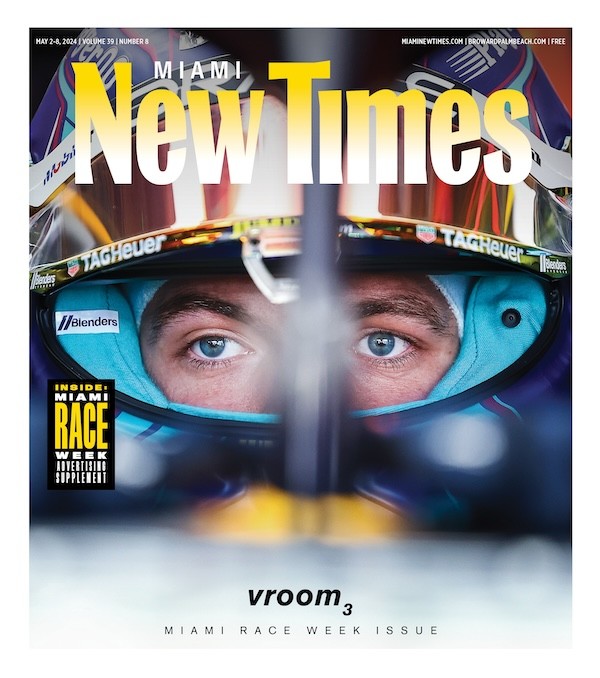The sound of fire — it's something humans almost primordially recognize, a steady crackle, a dull roar, a heady crash. Or water — a persistent trickle, perhaps, or maybe a steady, shallow slap.
But how to translate that into music, especially with guitars? Well, fire becomes all down-tuned minor keys, the engulfing quality of a forest blaze translated as an echoing wall of distorted sound. Water is a looping drumbeat, a series of piano chords lapping at its edges, woozy vocals carrying them back to the deep.
At least that's how they appear in the complex, inward-turning world that is The Alchemy Index, the latest two-volume effort from the California-based quartet Thrice. A concept project based more on theme than plot, the albums contain four discs, each based on a separate element: fire and water in the first set, air and earth in the other. The first volume was released this past October; the second one is due next April.
The project represented a clean slate for the band, a dramatic sonic break from the work that propelled it to postpunk success. Formed nearly 10 years ago by guitarist/vocalist Dustin Kensrue and guitarist Teppei Teranishi, Thrice featured an initial sound that was melodic, but also pleasingly abrasive; emotionally explorative, to be sure, but charging and unrelenting rather than whiny.
Signed to Hopeless/Sub City in 2001, the band paired up with hallowed hardcore producer Brian McTernan. The first product of the collaboration was 2002's The Illusion of Safety; it was enough to earn a major deal with Island. McTernan then produced the big-budget followup, The Artist in the Ambulance, in 2003. Two years later, Thrice dropped Vheissu, produced by Steve Osborne, before eventually jumping back to an indie, Vagrant, earlier this year.
The Alchemy Index is the sound of a band springing from major-label constraints, picking apart influences and following them individually rather than mashing them into a pop package. It's an intended study in contrasts, slipping almost without warning from fields of anxious, muddy power chords into ambient electronic noise, with a plaintive but powerful voice narrating the journey.
Kensrue recently discussed the origins of the project, and the mechanics behind realizing it. Somewhat soft-spoken, the 27-year-old mumbles and then enunciates deliberately, as if weighing the most accurate response. He also, apparently, displays fastidious tour hygiene; reached on his cell phone in Dallas, he paused briefly to finish brushing his teeth.
New Times: So it was you who first came up with the concept for The Alchemy Index, right?
Kensrue: Yeah, well, it was my head that it popped into. I guess the reason I initially liked it was I felt like it was almost uniquely made for our band to do. We were very interested in a bunch of different kinds of music, trying to pull the pieces together, but this was about deconstructing them and pushing them apart.
I think people were skeptical at first with a concept record in general, and a pretty unorthodox one as well, being that it's four discs. But I think eventually everyone was able to sit with it and get excited about it. There were a bunch of different phases before it turned out the way it is now.
Obviously the term prog rock is going to get thrown around when you start working with concept albums. Did you listen to much of that while growing up?
No. I'm not against it, but I'm not way into it. I do appreciate the fact that by having a concept record, you're at least taking some care to make a full piece of art that is integrated and is not just a compilation of songs. But I've never been a big prog or concept album kind of fan.
Do you worry about releasing something that is so complete a unit, in a culture that is currently more about downloading and shuffling individual songs?
I think that affects you no matter what. But maybe there's some more incentive for people to listen to this project [in its complete form] because there are four separate discs.... And I think CD players are still somewhat viable. Like, in cars especially, I like listening to CDs, because I like listening to things over and over. So I think these will function well in that capacity.
Why did you decide to explore fire and water first, as opposed to another combination of the elements?
It seemed like fire and water complemented each other well. They're very contrasting, so I thought it would be a better vision of the whole project, to let you know it's really broad, more so than if we did air and earth first.
In the press materials for the album, there's a quote from Teppei about not wanting the record to sound the way it's "supposed to sound." What do you mean by that? Did you feel like you were getting pushed in a specific direction before?
It's just that everyone gets into patterns and ruts, you know? Especially if you work with one producer. It doesn't mean that what they're doing is bad, but you get stuck in something. It's all subjective, and there's a way you can do things that is not the way that everyone else is doing.
What's an example of a pattern you fell into?
Being overly analytical about tones, you know? Wasting a lot of time because you have so many people trying to figure out the perfect tone. There's not a perfect tone. There's an infinite variety of tones. You gotta keep some kind of life to what you're doing, and when you stop for two days to analyze a snare, it's crippling.... I love Brian, but I feel like you lose some life when you worry about that too much.
Is the next volume, with the earth and air discs, already done?
It'll be coming out in April; it was all finished at the same time. It's tempting to move it up earlier, but I felt like it's about six months between volumes, a good length for not being like, 'Oh, here's another one, by the way!' I want them each to get a fair shake with people listening to them. But I remember when Radiohead's Kid A and Amnesiac came out, it was awesome because they were like nine months apart. They were related, but I appreciated a whole new album coming out within the year.
With this album so different from your previous work, how do you arrange your live set lists?
Well, that's another benefit to the volumes being broken up; we only have to deal with 12 new songs right now. But it's still adding a lot to your repertoire. I think we're playing 14 songs in the set and five are off the new record. I think like two are off The Illusion of Safety. A good balance is important for your fans — they don't just want to hear your new stuff, even if they're really excited about it. It's always hard for us, especially because our music varies so much, it's hard not to have a schizophrenic feeling.










